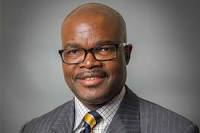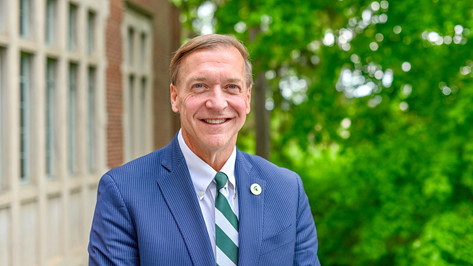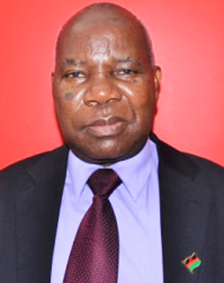2020 was probably the most difficult since the birth of the Alliance for African Partnership (AAP) in 2016. Difficult, not because work was impossible, but largely because travel and physical collegiality which strengthen the bonds of the consortium, grounded to a halt, courtesy of the Covid-19 pandemic which saw travel severely restricted or outright banned.
The scourge which has seen the world employ new ways of doing things to ensure that economies do not completely collapse, also became a motivating factor within the AAP, pushing the management team and the 11 consortium members to innovate.
“None of us anticipated it and certainly many of us were not prepared in dealing with the magnitude that has disrupted everything around the world,” said Prof. Paul Zeleza who moderated six AAP dialogue series.
The AAP organized a six-part dialogue series through which leaders of academic institutions deliberated on the impact of Covid-19 on institutions of higher learning as well as national economies, broadly.
The dialogues attracted 2,277 attendees from 61 countries across the globe. Attendees included vice chancellors, academic staff and students at African universities; leadership and academics of other universities globally; representatives of the public and private sector in Africa; funding partners, think tanks and NGOs with interest in Africa’s development.
“That was definitely unprecedented. The dialogue series brought together key voices in academia and international development world to discuss issues that have a considerable impact on the African continent particularly in the face of Covid-19,” says AAP Africa Director, Prof. Richard Mkandawire.
The dialogues were not just the usual tale of academics talking from ivory towers; they were designed to spur change in academic institutions and beyond through innovation. By the end of it, five Africa-led research teams have been formed.
“That is key for the future of African research and innovation,” suggests Amy Jamison, AAP Co-Director based at MSU.
Of the six series, the dialogue on impact of covid-19 on education showcased how institutions responded to the pandemic to keep students learning, but also how the pandemic had changed the landscape of higher education in multiple ways.
The panel included Prof. Tawana Kupe, Vice Chancellor University of Pretoria, Dr. Samuel Stanley, President of Michigan State University and Dr. Mpine Makoe who is the Commonwealth Learning Chair for Open Education Resources and Practices at University of South Africa.
The panel revealed that even though almost all 11 AAP member universities transitioned to online learning, experiences were different. For others such as MSU, drawing on available technology and resources, they were able to transition easily.

Within two days, he added, MSU was “teaching everybody online, and that was an amazing accomplishment.”
University of Pretoria drew on experience from previous crises and strengthened the online learning program to keep students learning, according to Prof. Kupe.
For many African institutions such as the Lilongwe University of Agriculture and Natural Resources (LUANAR) in Malawi, it was a struggle to implement online learning technology as well as to get instructors comfortable teaching online. This is where institutions found rich ground for collaboration to share experiences, expertise and technology.
The LUANAR Vice Chancellor, Prof. George Kanyama-Phiri remarked that this is the future of continental 
“At LUANAR, we see COVID-19 as both a challenge and opportunity on which to build more partnerships and collaboration,” he said.
Other topics featured in dialogues included Responses to COVID-19 by African universities; potential challenges of student recruitment in the age of COVID-19; the economic, food security and livelihoods impact of COVID-19 in Africa; the psychosocial impact of COVID-19 on university faculty and students; and opportunities for partnership and engagement in the era of COVID-19 and beyond.
Founded by Michigan State University in 2016 in collaboration with African colleagues, the AAP is a consortium of MSU and ten leading African universities. AAP members are committed to working in equitable partnership to transform lives and address global challenges. The AAP contributes to MSU’s long-term engagement in Africa, building on the foundation laid by the African Studies Center and evolving models of engagement in line with AAP’s guiding principles of accountability, equity, inclusivity, sustainability and transparency.